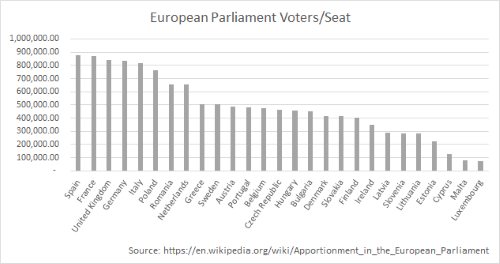I attended the lunchtime meeting hosted by three of London’s Labour MEPs. They started by saying thank you to the members at the meeting for the efforts made to secure London’s fantastic result in the Euro elections. The meeting was framed as “How to fight UKIP?” The old canard, started by Farage that London is inoculated from UKIP, because we’re young, liberal and cosmopolitan, the truth in my mind is that London’s multiculturalism is its UKIP anti-body. One of the attendees, spoke on dealing with UKIP, which I summarised in this tweet,
How to fight UKIP? Don't start with them, establish Labour relevance through interests not facts. #LondonLab14
— Dave Levy (@DaveLevy) November 30, 2014
There was one contribution on TTIP calling on Labour and the PASD to oppose TTIP, firstly because of the threat ISDS poses to the NHS but also because of the threats to food standards. We should add that ISDS is a threat to all government regulation, and that the US negotiating position and the supine agreement of the retiring Commission remains a threat to food safety, environmental protection, employee protection and privacy standards in Europe. As pointed out by speakers at Labour Party conference, not only is the NHS potentially under threat, so is education and other public services. I say again, excluding the NHS from ISDS is not enough to make TTIP acceptable, although one speaker mentioned the US tax & tariff regime that protects the US energy market and the advantages that TTIP might make to the EU if these tax barriers were reduced. Everyone seems to find at least one fig leaf that allows them to support it.
Another theme repeated was that of accountability of the MEPs and that a single all London constituency makes accountability difficult, one attendee suggested a move towards the German model adopted in both London and Scotland. (I think it’s coming.) Such a change would re-establish a constituency link between the MEPs and their voters and parties, with which I agree. It is an interesting point that British Political Parties still attempt to talk to voters by door step campaigning. There can be no doubt that having a constituency as large as London makes this hard. One of the reasons that Labour did well in the cities last May is that they were electing their local councils on the same day and the power of the doorstep campaign reflected that. It was pointed out that the number of MEPs per country is agreed in the treaties and that increasing the number for the UK would provoke considerable resistance. This led me to see how this works across Europe. The fabulous Wikipedia, has a page, that yields this chart.
This shows the diversity of the influence of voters across the EU and that if the UK were to ask for more MEPs, this couldn’t be done without most other countries also increasing their representation. I am sure that many pro-europeans might not thank me for this graph, but I think that Labour and the country can unite around the proposition that there are things that need reform in the EU, and this may be one of them. It takes 75,000 voters to elect a Luxembourg MEP and 840,000 to elect a British one, and more for the Spanish & French. This might need to change. (These numbers must reflect constituency sizes and not turnout.)
ooOOOoo
While talking to a friend they pointed out that if one was to reduce, say Luxembourg’s representation below six members, this would reduce the proportional nature of the results, and if one was to increase the UK representation to the same rate as that of Luxembourg, the UK would have of the order of 780 representatives, which is more than in the UK parliament today which some consider too large, although I don’t. It would also suggest a European Parliament of about 6,500 representatives. (This could probably be halved without destroying proportionality.) A member of a body of this size wouldn’t get a lot of speaking time; the CPSA annual conference in the 1980’s, not necessarily a beacon of representative democracy was about 3500 delegates and they still had block/card votes to ensure numeric equality because like in the European Union smaller branches representation meant they were over represented by their delegates . Perhaps that’s the answer, introduce card votes to the European Parliament.
A single election with five seats implies a winning vote of about 17%, three seats implies 20% and for places like Northern Ireland, who have three MEPs and Belgium who have 22, not to mention parts of Eastern Europe, it remains an important part of the political settlement to have meaningful proportional representation to ensure the representation of political & ethnic minorities. DFL 1 Dec 2014

Funny how articles go, this wasn’t meant to be an article on electoral arithmetic, more an exploration on parties and accountability but hey, they go where they go.
I made some small changes this morning. I clarified the UK MEP accountability issue and the nature of the German model, also known as the Additional Member System which was what was proposed for the UK by the Jenkins Commission in 1997. I put some more facts and a bit of context into the section on voter’s power including the comparison, in a hover comment, between Belgum & London.
Pingback:Time managment – davelevy.info